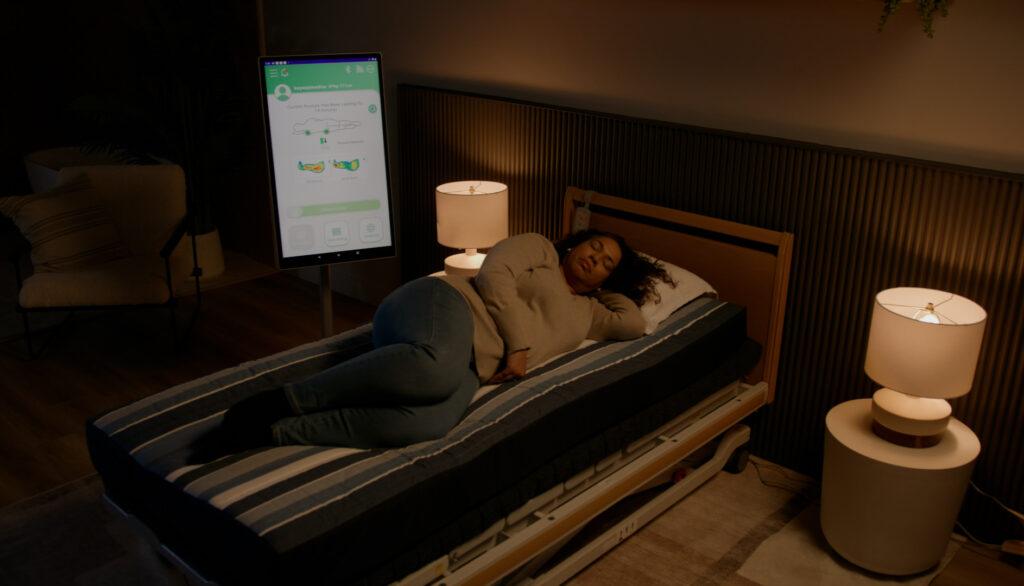
Mental Health Tips: Simple Ways to Boost Your Well-Being
In today’s fast-paced world, mental health is more important than ever. With constant demands from work, family, and social obligations, adults often face stressors that can negatively impact their emotional and psychological well-being. It’s crucial to adopt healthy habits that support mental resilience and emotional balance.
This article offers practical tips for nurturing mental health, focusing on the mind-body connection, stress management techniques, and the importance of building strong social connections. Additionally, it explores how physical health products can contribute to overall mental wellness, taking a holistic approach to well-being.
Understanding the Mind-Body Connection
Mental and physical health are deeply intertwined. How you care for your body impacts your mind, and vice versa. Understanding this connection helps you make more informed choices to support both aspects of well-being.
Here are a few ways to improve both mental and physical health:
- Regular Exercise: Physical activity not only benefits your body but also releases endorphins, chemicals in the brain that act as natural painkillers and mood elevators. Exercise can help reduce anxiety, depression, and negative moods while boosting self-esteem.
Try a mix of cardiovascular exercises (walking, running) and strength training to benefit both mental and physical health. - Balanced Nutrition: The foods you eat can affect the structure and function of your brain, impacting mood and mental clarity. A diet rich in vegetables, fruits, whole grains, and lean proteins supports cognitive function and emotional stability.
Omega-3 fatty acids, found in fish, nuts, and seeds, are particularly beneficial for brain health. - Stay Hydrated: Dehydration can lead to headaches, reduced concentration, and irritability, all of which can worsen mental health issues. Drinking enough water each day supports your body’s overall function and mood regulation.
By paying attention to both physical and mental wellness, you create a foundation for healthier living.
The Power of Sleep in Supporting Mental Health
Sleep is one of the most important pillars of mental health. It plays a key role in mood regulation, stress reduction, and cognitive function. Poor sleep habits can lead to irritability, decreased emotional resilience, and a higher risk of mental health issues such as anxiety and depression.
Here’s how to improve your sleep hygiene:
- Establish a Regular Sleep Schedule: Go to bed and wake up at the same time every day, even on weekends. This helps regulate your body’s internal clock and improves the quality of your sleep.
- Create a Calming Sleep Environment: Make sure your bedroom is conducive to rest by keeping it cool, dark, and quiet. Consider investing in blackout curtains and reducing noise with a white noise machine.
- Limit Screen Time Before Bed: The blue light emitted from phones, tablets, and computers can interfere with your body’s ability to produce melatonin, the hormone responsible for sleep. Aim to turn off screens at least an hour before bedtime.
- Wind Down with a Relaxing Routine: Engage in relaxing activities before bed, such as reading, meditating, or taking a warm bath. This helps signal to your brain that it’s time to sleep.
By improving your sleep quality, you’re setting yourself up for better mental and emotional well-being.
Managing Stress with Mindfulness and Relaxation Techniques
Stress is a natural part of life, but chronic stress can take a serious toll on your mental health. Mindfulness and relaxation techniques are powerful tools that can help manage stress and improve emotional balance.
Here are some effective strategies for stress relief:
- Mindful Breathing: Focus on your breath to ground yourself in the present moment. Deep breathing exercises, such as inhaling for four counts, holding for four counts, and exhaling for four counts, can quickly reduce anxiety. Try to practice mindful breathing for five minutes each day, especially during stressful moments.
- Progressive Muscle Relaxation: This technique involves tensing and then relaxing each muscle group, starting from your toes and moving up to your head. It helps release physical tension and promotes relaxation.
- Meditation: Meditation encourages mental clarity and emotional calmness by training your brain to focus on the present. Even a few minutes of meditation each day can significantly lower stress levels.
- Visualization: Guided imagery or visualization involves imagining a peaceful place or situation, allowing your mind to relax and release stress. This can be a great technique for calming the mind before sleep or during stressful times.
Integrating these practices into your daily routine can improve mental clarity and reduce anxiety, helping you cope with life’s challenges more effectively.
Building a Strong Support System
Human connection is vital to mental well-being. Having a strong support system can buffer against stress, anxiety, and depression. Meaningful social relationships provide emotional support, reduce feelings of loneliness, and promote positive mental health.
- Nurture Close Relationships: Take time to build and maintain strong bonds with friends, family, or a community group. Regular communication and support are key to fostering healthy relationships.
- Seek Out Social Groups or Activities: Whether it’s joining a fitness class, hobby group, or volunteering, engaging in social activities helps you connect with others who share similar interests, which can provide a sense of belonging.
- Engage in Meaningful Conversations: When you’re feeling overwhelmed, talking to someone you trust about your feelings can provide emotional relief. Sometimes just expressing your emotions is enough to feel better.
- Give and Receive Support: Helping others can also boost your mood. Whether it’s lending an ear to a friend or volunteering in your community, acts of kindness increase feelings of connectedness.
Building a support network helps reduce isolation, a key factor in mental health decline, and offers emotional security in times of need.
Taking Breaks from Technology: The Importance of a Digital Detox
Constant digital engagement, whether through work emails, social media, or streaming, can contribute to mental fatigue, anxiety, and stress. Taking regular breaks from technology can improve focus, reduce mental clutter, and promote relaxation.
Here’s how to implement a digital detox:
- Set Time Limits on Devices: Use apps that track screen time or limit your usage of social media. By cutting down on screen time, you’ll be able to focus on more mindful and fulfilling activities.
- Schedule “No-Screen” Time: Dedicate certain hours of your day to being screen-free, such as during meals, before bed, or when engaging in a hobby or exercise.
- Take Phone-Free Walks: Go outside for a walk without your phone to engage with nature and disconnect from technology. This is a great way to clear your mind and reduce stress.
- Unplug for Mental Clarity: Even short breaks from technology can refresh your mind and reduce mental fatigue. Try implementing a “tech-free day” once a week to allow your brain to rest.
Regular digital detoxes will enhance focus, reduce anxiety, and improve your overall well-being.


The Role of Physical Health Products in Supporting Mental Well-being
While this article focuses primarily on mental health strategies, it’s important to recognize that physical health products can also play a crucial role in mental wellness. For example, the ReNuCare® AI Mattress is designed to improve sleep quality, which directly impacts mood regulation, stress reduction, and cognitive function. The ReNuCare® Standing Bed also supports mobility and independence, which can reduce anxiety and promote a sense of control and well-being.
By incorporating products like these into your routine, you can create a more supportive environment that promotes both physical comfort and mental peace.
Practicing Gratitude and Positive Thinking
Gratitude and positive thinking can significantly improve mental well-being. Shifting your mindset to focus on the positive aspects of life can help combat negative thinking and stress.
Here are simple ways to practice gratitude:
- Keep a Gratitude Journal: Write down three things you’re grateful for each day. This helps shift your focus from problems to blessings.
- Practice Affirmations: Start your day with positive affirmations, such as “I am capable” or “I am deserving of happiness.” Repeating these statements can boost self-esteem.
- Acknowledge Small Wins: Celebrate small achievements, whether it’s completing a task at work or spending time with loved ones.
Recognizing When to Seek Professional Help
While self-care practices are vital for maintaining mental health, there are times when professional help is needed. Knowing when to seek support from a therapist, counselor, or psychiatrist can make a significant difference in managing mental health challenges.
Signs it’s time to seek professional help include:
- Prolonged Feelings of Sadness or Anxiety: If you’re experiencing persistent feelings of depression, anxiety, or hopelessness that last for weeks or months, it may be time to seek therapy.
- Difficulty Functioning in Daily Life: If stress, anxiety, or depression is affecting your ability to perform everyday tasks, you may need professional support to develop coping mechanisms.
- Prolonged Feelings of Sadness or Anxiety: If you’re experiencing persistent feelings of depression, anxiety, or hopelessness that last for weeks or months, it may be time to seek therapy.
- Changes in Sleep or Appetite: Significant changes in sleep patterns (insomnia or oversleeping) or appetite may indicate underlying mental health issues.
- Feelings of Isolation or Hopelessness: If you’re feeling disconnected from others or hopeless about the future, talking to a mental health professional can provide relief.
Creating a Mental Health Action Plan
Maintaining mental health is an ongoing process. Creating a personal mental health action plan can help you stay on track and identify areas where you need support.
Here’s how to create your own plan:
- Set Realistic Goals: Identify small, achievable mental health goals, such as practicing mindfulness daily or getting more sleep.
- Establish a Routine: Consistency is key. Incorporate mental health practices like exercise, gratitude, and digital detoxes into your daily routine.
- Check-In with Yourself: Regularly assess your emotional and mental state. Journaling or talking to a trusted friend can help you stay in touch with how you’re feeling.
- Know When to Seek Help: Be proactive in seeking professional support when needed. Your mental health action plan should include a list of local mental health resources or professionals you can contact.
Conclusion: A Holistic Approach to Mental Health
Mental health is a lifelong journey that requires consistent care and attention. By integrating the tips shared in this article—such as improving sleep, managing stress, building a support network, and taking regular breaks from technology—you can enhance your overall well-being.
Remember, prioritizing mental health daily through small, intentional changes can create a lasting impact on your emotional and mental health.
If you’re looking to invest in innovative assistive devices that meet the highest standards of quality, safety, and sustainability, consider the ReNuCare® Standing Bed and ReNuCare® AI Mattress. For more information or to schedule a demo, contact us today.
References
Mayo Clinic. (2024). Depression and Anxiety: Exercise Eases Symptoms. Retrieved from: https://www.mayoclinic.org/healthy-lifestyle/fitness/in-depth/exercise-and-depression/art-20046495
National Sleep Foundation. (2024). Mental Health and Sleep. Retrieved from: https://www.sleepfoundation.org/mental-health
Mind.org. (2024). Mindfulness and Mental Health: How to Reduce Stress with Mindfulness Techniques. Retrieved from: https://www.mind.org.uk/information-support/drugs-and-treatments/mindfulness
International Journal of Public Health. (2022). Prospective Associations Between Social Connectedness and Mental Health. Retrieved from: https://doi.org/10.3389/ijph.2022.1604710
GoodRx. (2022). 4 Reasons a ‘Digital Detox’ Could Be Good for Your Health. Retrieved from: https://www.goodrx.com/health-topic/mental-health/digital-detox
Mental Health America. (2024). When to Seek Professional Help for Mental Health Issues. Retrieved from: https://www.mhanational.org/mental-health-screening-tools


